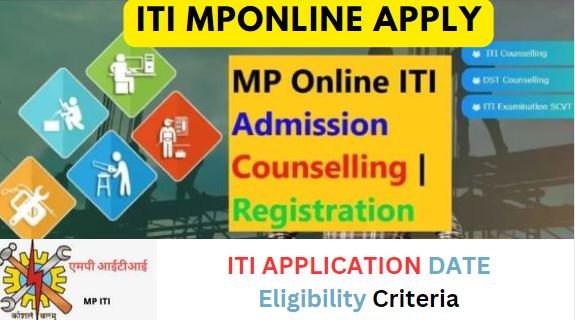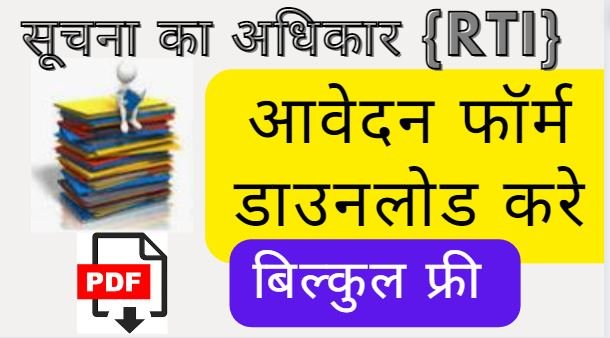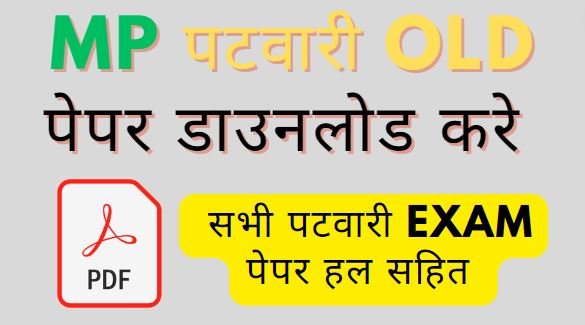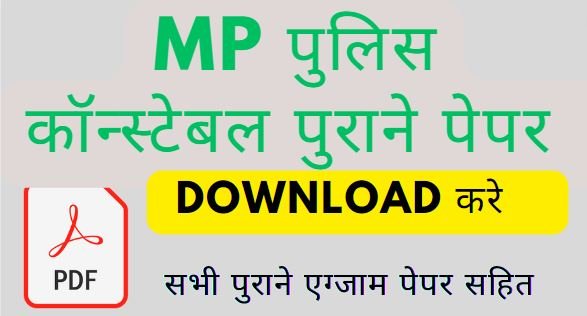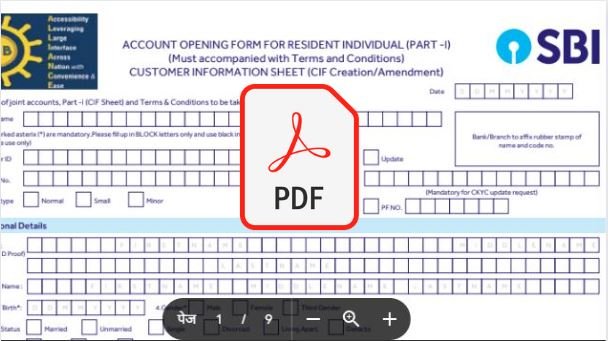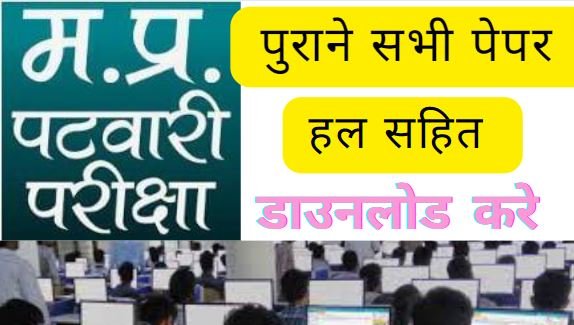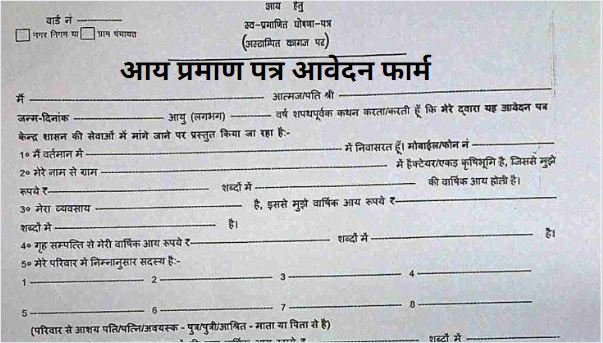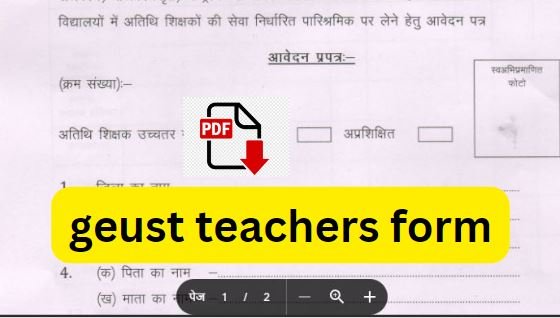ITI MPOnline – In recent years, ITI has emerged as a prominent platform for technical education in Madhya Pradesh, India. The state government’s initiative aims to provide skill development and vocational training to students, empowering them to build successful careers in various industries. In this comprehensive guide, we will explore the key aspects of ITI ,
including its benefits, courses offered, admission process, and how it can shape your future. Whether you’re a student considering enrolling in ITI or Start and last date of applying for admission in ITI and want to take all the information related to RTI, on the basis of which how can we make our future bright by completing ITI and getting employment opportunities after doing ITI, all the information here Will try to share in detail, hope you must read this article from beginning to end
What is ITI
ITI stands for Industrial Training Institute. It is a vocational training institute that offers technical education and skill development programs to students in various trades. ITIs aim to equip students with practical skills and knowledge required for specific industries and occupations.
The main objective of ITIs is to bridge the gap between the demand for skilled workers in industries and the availability of a trained workforce. These institutes provide hands-on training in different trades to prepare students for jobs in sectors such as manufacturing, construction, automotive, electronics, hospitality, and more.
ITIs offer a wide range of courses, including both engineering and non-engineering trades. Engineering trades cover fields like electrician, fitter, welder, plumber, mechanic, machinist, and so on. Non-engineering trades include courses like computer operator and programming assistant (COPA), stenography, dressmaking, cosmetology, and others
The duration of ITI courses varies depending on the trade and can range from six months to two years. The training programs focus on practical skills, supplemented by theoretical knowledge, to ensure that students are well-prepared for the workforce.
Upon completion of an ITI course, students receive a trade certificate, which is recognized by the government and various industries. This certification enhances their employability and opens up opportunities for job placements or self-employment in their respective fields.
ITIs are usually run by the government or private institutions and are regulated by the Directorate General of Training (DGT) under the Ministry of Skill Development and Entrepreneurship in India. These institutes play a crucial role in promoting skill development, reducing unemployment, and contributing to the overall growth of the economy
Benefits of ITI
ITI (Industrial Training Institute) programs offer several benefits to students and contribute to their personal and professional growth. Here are some key benefits of pursuing ITI training:
- Skill Development: ITI courses focus on practical skills development, providing hands-on training in specific trades. Students gain expertise in a particular field, enabling them to perform tasks efficiently and effectively. The emphasis on practical training equips students with industry-relevant skills, making them job-ready.
- Employment Opportunities: ITIs cater to the demand for skilled workers in various industries. Completing an ITI course enhances employability and opens up a wide range of job opportunities. Industries such as manufacturing, construction, automotive, electronics, hospitality, and more actively seek ITI graduates for their technical expertise
- Industry-Relevant Curriculum: ITIs design their courses in consultation with industry experts, ensuring that the curriculum aligns with current industry standards and requirements. Students learn the latest techniques, technologies, and practices that are relevant to their chosen trade. This makes them well-prepared to meet the demands of the job market.
- Practical Learning Environment: ITI programs provide a practical learning environment where students get hands-on experience with tools, machinery, and equipment related to their trade. This practical exposure helps them develop a deep understanding of the trade and build confidence in their skills.
- Short Duration Courses: ITI courses are generally shorter in duration compared to traditional academic programs. Most ITI courses can be completed within six months to two years, allowing students to enter the workforce quickly. This is particularly beneficial for individuals who want to start working or earn a living at the earliest
- Recognition and Certification: ITI certifications are recognized by the government and various industries. Obtaining a trade certificate from an ITI adds credibility to a student’s skills and qualifications, enhancing their professional profile. The certification serves as proof of competence in a specific trade and improves the chances of securing employment.
- Self-Employment Opportunities: ITI training equips students with entrepreneurial skills, enabling them to start their own businesses or become self-employed. With the practical skills and knowledge gained through ITI programs, individuals can establish themselves as independent professionals or tradespeople, contributing to economic growth and self-sustainability.
- Further Education Opportunities: ITI graduates also have the option to pursue further education and advance their skills. They can opt for higher-level technical courses, diploma programs, or even pursue engineering degrees through lateral entry schemes. ITI training serves as a solid foundation for continuous learning and career progression
Overall, ITI programs provide a valuable pathway for individuals to acquire industry-specific skills, improve employability, and build a successful career. The practical training, recognition, and diverse employment opportunities make ITI an attractive choice for those interested in vocational education and technical skills development.
{PDF} self declaration form download
Madhya Pradesh ITI Courses List
Various types of different engineering trades and non-engineering trades are eligible for admission in different courses for taking admission in ITI by the state of Madhya Pradesh, in which the following list is given on the basis of your choice, in which you can choose
Engineering Trades
- Electrician
- Fitter
- Welder
- Mechanic (Motor Vehicle)
- Mechanic (Diesel)
- Turner
- Machinist
- Instrument Mechanic
- Electronics Mechanic
- Draughtsman (Civil)
- Draughtsman (Mechanical)
- Surveyor
- Refrigeration and Air Conditioning Mechanic
- Information Technology and Electronic System Maintenance (ITESM)
- Tool and Die Maker
- Plumber
- Carpenter
- Sheet Metal Worker
- Painter (General)
- Wireman
- Mechanic (Tractor)
- Mechanic (Machine Tools Maintenance)
Non-Engineering Trades
- Computer Operator and Programming Assistant (COPA)
- Stenography (English/Hindi)
- Cutting and Sewing
- Dressmaking
- Hair and Skin Care
- Basic Cosmetology
- Front Office Assistant
- Secretarial Practice (English/Hindi)
- Health Sanitary Inspector
- Fireman
- Surface Ornamentation Techniques (Embroidery)
Eligibility Criteria
- Age Limit: The minimum age to apply for ITI MPOnline courses is typically 14 years. There is usually no upper age limit for admission.
- Educational Qualification: The educational qualification required for ITI MPOnline courses is as follows:
- For most engineering trades: Candidates should have completed 10th standard (secondary school) from a recognized board.
- For non-engineering trades like COPA, Cutting and Sewing, etc.: Candidates should have completed 8th standard (middle school) from a recognized board.
- Physical Fitness: Some trades may require candidates to meet certain physical fitness standards. This is particularly applicable to trades like Welder, Fitter, Carpenter, etc., which involve manual labor and physical exertion. Candidates may need to undergo a medical fitness check-up to ensure their suitability for these trades.
It is important to note that these eligibility criteria are general guidelines, and specific trades or ITI centers may have additional requirements or variations in the eligibility criteria. It is advisable to refer to the official website of ITI MPOnline or contact the respective ITI center for the most accurate and up-to-date information regarding the eligibility criteria for a specific trade or course.
Additionally, the admission process for ITI MPOnline may involve entrance exams or merit-based selection, depending on the number of available seats and the specific trade. It is essential to follow the official guidelines and instructions provided by ITI MPOnline for the admission process
Industrial Training Institute documents
To apply for ITI MPOnline (Madhya Pradesh Online), candidates are generally required to submit certain documents during the admission process. While the specific document requirements may vary slightly depending on the ITI center and trade, here is a list of commonly requested documents:
- Age Proof: Documents such as birth certificate, school leaving certificate, or any other official document that verifies the candidate’s date of birth.
- Educational Qualification Certificates: Documents attesting to the candidate’s educational qualifications, such as mark sheets, certificates, or diplomas. This may include 10th standard (secondary school) mark sheet for engineering trades or 8th standard (middle school) mark sheet for non-engineering trades.
- Domicile Certificate: A domicile certificate or proof of residence in Madhya Pradesh. This document establishes the candidate’s eligibility for state-level quota or reservation, if applicable
- Category Certificate: If the candidate belongs to a reserved category such as SC/ST/OBC, they may need to provide a valid category certificate issued by the competent authority.
- Aadhaar Card or ID Proof: A copy of the candidate’s Aadhaar card or any other government-issued identity proof.
- Passport-sized Photographs: Recent passport-sized photographs of the candidate as per the specified dimensions.
- Medical Fitness Certificate: Some trades may require candidates to submit a medical fitness certificate, stating that they are physically fit to undertake the training
iti Online Application Process
| Online Application | click hare |
| officail website | iti.mponline.gov.in |
The online application iti process for ITI (Madhya Pradesh Online) involves the following steps:
- Visit the Official Website: Go to the official website of ITI MPOnline. You can search for “ITI MPOnline official website” on a search engine to find the correct website.
- Registration: Look for the registration or apply online link on the website. Click on it to start the registration process. You may need to provide basic information such as name, date of birth, email address, mobile number, etc. Follow the instructions and complete the registration process.
- Fill the Application Form: After successful registration, log in to your account using the provided credentials. Locate the application form for ITI admissions and fill in the required details. Make sure to provide accurate information regarding personal details, educational qualifications, choice of trade, etc
- Upload Documents: Scan or take clear photographs of the required documents and upload them as per the specifications mentioned on the website. Commonly requested documents include age proof, educational qualification certificates, domicile certificate, category certificate (if applicable), ID proof, photographs, etc. Ensure that the uploaded documents are legible and meet the specified size and format requirements.
- Application Fee Payment: Pay the application fee as per the instructions provided. The fee amount and payment methods will be mentioned on the website. Online payment options such as credit/debit cards, net banking, or e-wallets may be available. Keep the payment receipt or transaction details for future reference.
- Review and Submit: Before submitting the application, carefully review all the information provided and make any necessary corrections. Double-check the uploaded documents and ensure they are attached correctly. Once you are satisfied with the application, submit it online
- Print Application Form: After submitting the application, download and print a copy of the filled application form for your records. This may be required during the further stages of the admission process
Conclusion
In conclusion, ITI (Industrial Training Institute) plays a vital role in providing vocational training and skill development to individuals. It offers a wide range of courses in engineering and non-engineering trades, equipping students with practical skills and knowledge required for specific industries. ITI programs focus on hands-on training, industry-relevant curriculum, and recognition through certifications.
The benefits of pursuing ITI training are numerous. It enhances employability, provides job opportunities in various industries, and contributes to reducing unemployment. ITI graduates possess specialized skills and knowledge that make them valuable assets in the workforce. They can also pursue self-employment and entrepreneurship, leveraging their practical training and expertise
What is ITI?
ITI stands for Industrial Training Institute. It is a vocational training institute that offers technical education and skill development programs in various trades
What is the duration of ITI courses?
The duration of ITI courses can vary depending on the trade and level of certification. Generally, ITI courses can range from six months to two years
What are the eligibility criteria for ITI courses?
The eligibility criteria for ITI courses typically include a minimum age requirement (usually 14 years) and educational qualifications such as completion of 10th standard (secondary school) for most engineering trades or 8th standard (middle school) for non-engineering trades
Is there an entrance exam for ITI admissions?
It depends on the ITI and trade. Some ITIs may conduct entrance exams for admissions, while others may have a merit-based selection process. The specific admission process can vary, so it’s important to check the guidelines provided by the respective ITI
What is the difference between engineering and non-engineering trades in ITI?
Engineering trades in ITI focus on technical skills related to engineering fields, such as electrician, fitter, welder, mechanic, etc. Non-engineering trades cover a range of vocational skills outside of the engineering domain, such as computer operator, dressmaking, cosmetology, stenography, etc
Are ITI certifications recognized?
Yes, ITI certifications are recognized by the government and various industries. They provide credibility to a candidate’s skills and qualifications and enhance their employability in their respective trades
What are the job prospects after completing ITI?
ITI graduates can find job opportunities in industries such as manufacturing, construction, automotive, electronics, hospitality, and more. They can work as skilled workers, technicians, or tradespeople in their chosen fields. Self-employment and entrepreneurship are also viable options
Can ITI graduates pursue further education?
Yes, ITI graduates can pursue higher-level technical courses, diploma programs, or even lateral entry into engineering degrees. ITI training serves as a solid foundation for continuous learning and career progression
How do I apply for ITI courses?
The application process for ITI courses typically involves online registration, filling out an application form, uploading required documents, payment of application fees, and following any additional instructions provided by the respective ITI
How can I get more information about ITI courses and admissions?
For more information about ITI courses and admissions, it is best to visit the official website of the ITI or contact the respective ITI centers. They will have the most accurate and up-to-date information regarding the courses offered, eligibility criteria, and admission process

